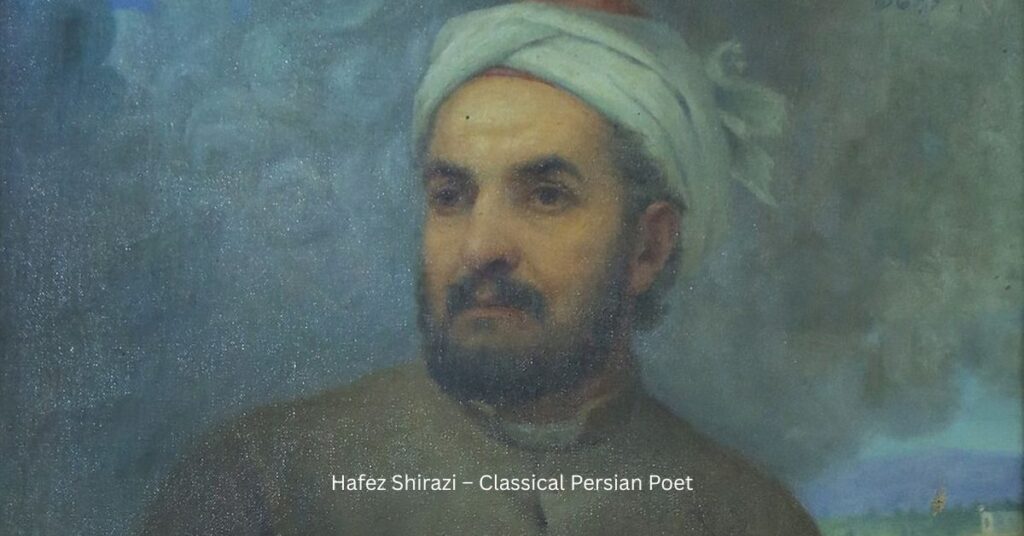Hafez Shirazi, also known simply as Hafez, is celebrated as one of the most influential classical Persian poets. His lyrical mastery, profound spiritual insight, and timeless expression of love and mysticism have made him a central figure in Persian literature, revered for centuries both in Iran and around the world.
Early Life and Background
Hafez was born around 1315 in Shiraz, a city in southern Iran renowned for its gardens, poets, and rich cultural heritage. While the exact details of his early life remain somewhat obscure, historical accounts suggest that he came from a modest family. He received a thorough education, studying the Quran, Arabic literature, Islamic sciences, and classical Persian poetry, all of which profoundly influenced his writing style.
Literary Contributions
Hafez is best known for his ghazals, a poetic form consisting of rhymed couplets and a refrain, often expressing themes of love, mysticism, and human experience. His poetry seamlessly combines spiritual depth with lyrical elegance, blending the secular and divine in a way that resonates with readers across generations.
Some key characteristics of Hafez’s poetry include:
- Mystical Imagery: Hafez frequently explores themes of divine love and the human soul, reflecting the influence of Sufism on his work.
- Symbolism: Wine, gardens, and nightingales are recurring symbols in his poems, often carrying deeper spiritual meanings.
- Philosophical Insight: His verses offer wisdom on life, love, morality, and the transient nature of existence.
- Wordplay and Rhythm: Hafez’s mastery of the Persian language allows for intricate rhymes, metaphors, and elegant rhythms that enhance the beauty of his poetry.
His collection, known as the Divan of Hafez, has been meticulously preserved and studied for centuries. It is considered a cornerstone of Persian literature and has inspired countless poets, philosophers, and scholars worldwide.
Influence and Legacy
Hafez’s influence extends far beyond his native Persia. His work has been translated into numerous languages and admired by figures such as Goethe, Emerson, and Nietzsche. The themes of his poetry—love, tolerance, spirituality, and the celebration of life—continue to resonate universally.
In Iran, Hafez’s tomb in Shiraz, known as Hafezieh, is a major cultural and spiritual site. Visitors from around the world come to pay homage, read his poetry, and immerse themselves in the beauty of his words. His poems are also commonly used in Fal-e Hafez, a traditional practice of divination where verses are interpreted to gain guidance and insight.
Conclusion
Hafez Shirazi remains an enduring symbol of Persian literary genius. His poetry transcends time and geography, offering both aesthetic pleasure and profound wisdom. Whether explored for its spiritual depth, lyrical beauty, or philosophical insight, Hafez’s work continues to inspire, captivate, and enlighten readers across generations.
Hafez’s legacy is not just in the poems he wrote but in the timeless way his words capture the essence of love, life, and the human spirit. For anyone seeking a deeper understanding of classical Persian poetry, Hafez Shirazi is an indispensable guide and source of inspiration.




